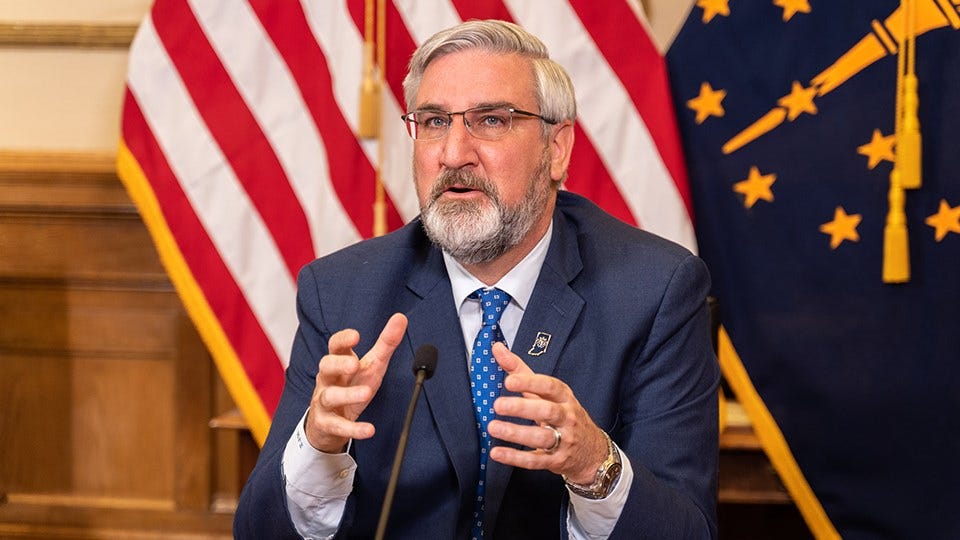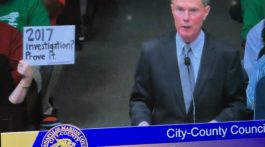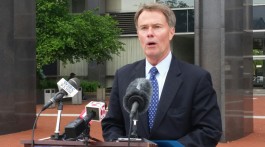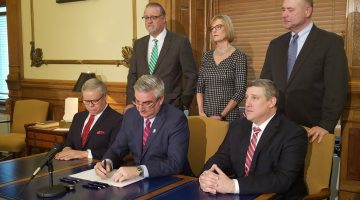by Jim Merritt
Every Indiana governor desires as much leverage as possible to deal with daily issues that come with running state government, while the Indiana General Assembly (IGA) serves as a “part time” participant in state government. Describing members of the Indiana Senate and House of Representatives as “part time” is a misnomer. They live in their districts. They go to the grocery, they attend church and they are accessible to the tens of thousands of constituents they swore to listen to and protect year round. They were elected to be the voice of their community and justifiably want to be heard by other members of the legislature and the Governor. The executive branch runs state government and the legislative – the 150 members of the IGA – are the “boots on the ground” listening to 6.6 million Hoosiers. They work in tandem.
The relationship between Gov. Eric Holcomb and the IGA has been severely tested since the global COVID-19 pandemic hit Indiana in March, 2020. At that time, Gov. Eric Holcomb signed the first of 19 30-day executive orders to combat the pandemic. These orders act as law and are not debated or voted on by members of the legislature, which is unlike every other law on the books in the state. This has left the 150 IGA members facing tough questions and responses from their constituents on a matter that they could not have any legal input on.
As a result of the flurry of Holcomb executive orders, Rep Matt Lehman (R- Berne), among other members of the House of Representatives, authored House Bill 1123. This measure turned the 2021 session of the Indiana General Assembly into an invisible slugfest. HB 1123 proposed to allow the General Assembly to convene in an emergency session when a state of emergency has been declared by the Governor. The legislature passed HB 1123, the Governor in turn vetoed the measure, and the General Assembly then overrode the veto. Now both the administrative and legislative branches of the Indiana government will rely on the judicial branch to decide for them.
Since session ended in April, the Governor has continued to sign emergency executive orders. He and the IGA have also opposed each other in Marion County Superior Court. Now the Governor has appealed to the Indiana Supreme Court. The Supreme Court must now decide that HB 1123 is unconstitutional or allow the lower court’s decision to stand.
This tug of war between the members of the same Indiana Republican Party has been difficult to watch. Writing and passing two specific pieces of legislation in the upcoming 2022 short session of the General Assembly would go a long way toward strengthening the office of the governor and the legislature as well, allowing our elected officials to feel like they have equal weight in decision making.
The first bill should be an amendment to the Indiana constitution establishing a two-thirds majority to override a governor’s veto. The office of the governor is constitutionally weak and needs to be strengthened. The constitution currently allows a veto override by a simple majority of members of the House and Senate. By requiring a more outspoken response from the legislature, executive decisions will have more staying power.
The second bill would cap gubernatorial executive orders at three 30-day periods. Should the emergency at the end of the 90th day persist, the language from HB 1123 kicks in and the legislature is called into emergency session. This gives the legislature the opportunity to bring their insights from across the state back to the Statehouse and decide as a group what is the best path forward in times of crisis.
By doing this, we allow the governor to make snap decisions when necessary and also are able to incorporate voices from communities across the state when there is time to do so. I believe this compromise will be in the best interest of Hoosiers, and leave us better prepared for whatever may lie ahead.
Jim Merritt is a former State Senator from Indianapolis.














